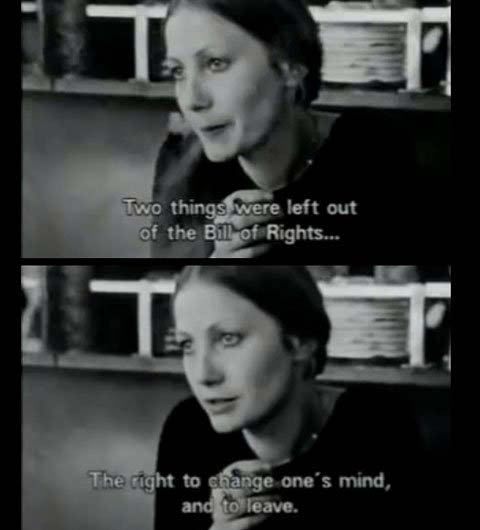Jean Eustache
Queer the number of pins they always have. No roses without thorns.
To those who know his name at all in America, Jean Eustache may be a one-hit wonder. But in France he’s far and away the most important filmmaker of the post–New Wave era. Eustache left an indelible mark on French cinema and exercised a profound influence on such directors as Olivier Assayas, Catherine Breillat, Claire Denis, Philippe Garrel, and Benoit Jacquot. His 1973 The Mother and the Whore is the kind of movie that few filmmakers even allow themselves to conindex, let alone make: brutally honest as self-portraiture, as frank about human relationships (sexual and otherwise) as movies have ever gotten, and the last word on post-’68 bohemian Paris. Eustache died before his time (by his own hand) in 1981. Often likened to John Cassavetes, he stands alone as a unique and visionary practitioner of the art.
Une sale histoire (A Dirty Story), directed by Jean Eustache, 1977
In A Dirty Story Jean Eustache presents the same story of storytelling twice: once in documentary fashion, filmed his friend Jean-Noël Picq in 16mm black and white, and a second time in 35mm color with the actor Michael Lonsdale reciting the same lines. Eustache invited his Jean-Noël Picq to sit down with a group of people to recount in detail how once, in the men’s room of a Parisian restaurant, he found a hole in the wall and peered through to a perfect view of the ladies’ room. In order to test his contention that the actor would prove more convincing than the real-life storyteller, Eustache placed the fictional version first. While the film never shows anything more shocking than a man talking, French censors gave the film an X rating, proving Eustache’s claim that “sex has nothing to do with morals, not even with aesthetics; sex is a metaphysical affair.”
Full second part (unsubtitled):


